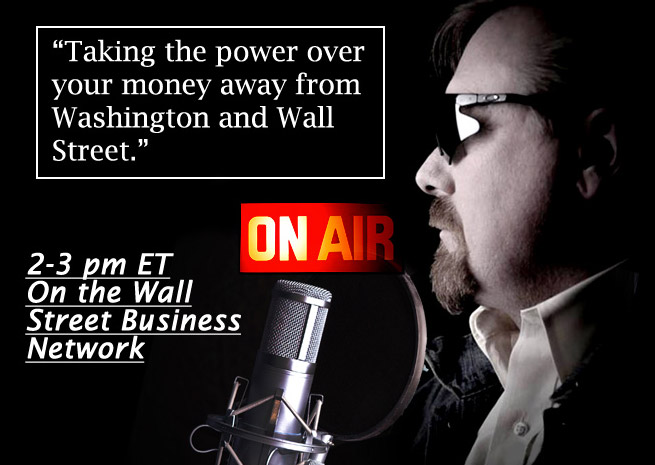Biotech company Excelixis CEO George Scangos likes to quote oil wildcatter JP Getty when asked about his philosophy for success: “Get up early; work hard; find oil,” he deadpans.
And under the direction of dry-humored Scangos, the San Francisco-based company is drilling a lot of research holes, so to speak.
They have to: Success in the biotech industry is measured incrementally, not in big steps. It’s a cash-and-time intensive industry where success is painstaking, rare and, because of Obamacare and other regulatory burdens from the administration, likely to become even rarer.
According to Plunkett Research, Ltd in 2010 it cost $1.2 billion to develop each and every biologic drug. That’s because while the government currently tracks 124,932 trials for new drug application in 179 foreign countries, only a tiny fraction of those drugs will ever see the marketplace.
Don't forget to catch Ransom Notes Radio, Monday-Friday, on the internet or via one of our local Salem stations listed right here @2PM-3PM ET.
In the United States, for example, there were only about 114 FDA approvals for new drugs last year. That’s a success rate of 0.091256. If that were a batting average for a baseball player, it would belong to a player who would never see the minor leagues, yet alone the Biggies.
"That means that enormous fortunes are going to be made in the sector," Jonathon Lach, CEO of BlueStar Capital Management, a biotech hedge fund headquartered in Westport, Connecticut told me in 2006. He pointed out, however, that the industry’s staggering failure rate makes some other long-odds stock market sectors look like safe bets in comparison. "Conversely, that means that enormous fortunes will also be lost in the sector."
Recommended
But under the greatest capital markets in the history of the world, biotechnology has thrived despite the long odds, because the enormous profit potential has attracted quite a bit of capital over the last 25 years.
25 years ago there were roughly 700 biotech companies. Now, worldwide there are 3853 companies with about half of those concentrated in the United States. U.S. companies account for about 75 percent of all revenues in biotech. But not for long.
The combination of free markets and efficient capital markets compared to other countries has allowed the Unites States to lead the way despite some bumps and bruises along the way. Market crashes, like the ones experienced in 1987 and 2008 make even viable biotech companies with a good pipeline of drugs hard to finance because they always need money.
Research and Development expenditures for new drug application in 2010 totaled $67.4 billion, according to Plunkett, in an industry that generated of about $81 billion in total revenues. That’s because biotech companies typically generate little revenue. Instead the companies rely on the stock markets to fund R&D. Then they usually sell out their discoveries to large pharmaceutical companies once they have successfully brought a drug to market, because biotechs are in the business of new research, not in the business of the distribution of new medicines. But, just like a wildcatter staking an oil claim, the profits are large for investors willing to be patient and work hard.
Lach once told me that investors who were willing to work hard to bring scientific insight into their investment model would necessarily do better than average.
But under Obamacare, and the other regulatory burdens on banking and investment, biotech will have a much harder time. In a quest to drive down costs in healthcare, there will be little tolerance for big profits, big losses or new discoveries in medicine under Obama’s prescription for single payer coverage for the entire universe.
Most other countries already operate under a system of nationalized healthcare and restricted capital markets.
Accordingly, investment banking activity for the biotech sector is much more robust in the United States than in the rest of the world. When the Atlantic’s Megan McArdle pointed this out, Obamacare shills like Ezra Klein of the Washington Post shouted her down, claiming that her hypothesis was a little more than a “thought experiment” because she lacked critical data to back up her assertion.
Well getting past the fact that most of Einstein’s most revolutionary concepts were little more than “thought experiments”- including the one for the photoelectric effect for which he won the Nobel Prize at a time when the Nobel Prize still meant something- here’s the hard data:
According to Indicium Data, LLC, a company that tracks biotechnology capital market trends, of the $6 billion in capital financings that happened worldwide for biotech in 2011 about $4.8 was raised in the United States. Twice as many dollars were raised in California and Massachusetts alone compared to the entire rest of the world. Of the 281 financings in biotech that happened worldwide, 211 of them happened in the US in 2011.
Experience from other countries has taught us that investors won’t continue to pour money into medical innovation when the incentive for innovation has disappeared.
Other countries like Australia can’t even raise a dime for biotech companies in capital markets.
It would be shame if the wonder drugs we rely on to help the elderly, the sick and our children stopped working wonders because a parochial and partisan prejudice against profits by liberals was allowed to outweigh the greater good.

























Join the conversation as a VIP Member